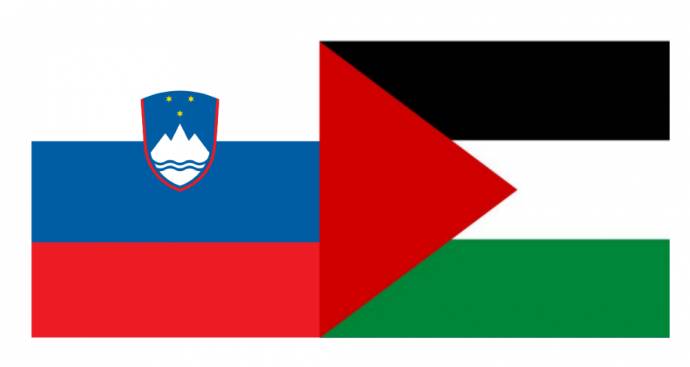STA, 3 April 2018 - The National Assembly will take a final decision on an opposition-sponsored initiative to recognise Palestine as an independent country on Friday after the Foreign Policy Committee has met over the matter on Wednesday. Despite general support for the move, parliament is unlikely to pass it.
The issue has been on the agenda for almost the whole of the parliament's term. The initiative was submitted by the Left as early as June 2015, pre-empting a move that the the ruling coalition had committed to take in its own contract.
The Left sought to take advantage of the Slovenian legislative solution which gives parliament a final say in recognising a country. This is unlike most western countries where the step is taken by the government.
The initiative for Palestine's recognition put other parliamentary parties in an awkward position; they all supported the move in principle, yet each had its own misgivings. The step was meant to offer moral support to the Palestinians in their talks with Israel.
The main concern was the implications of the recognition on Slovenia's relations with Israel and in particular the US. Arguing that the impact would have been lesser if Slovenia took the move as part of a group of several EU countries, the plan in late 2015 had been for the foreign minister to find a group of like-minded countries.
Palestine has so far been recognised by 136 out of the 193 UN member nations, including several EU countries. Most did so in the late 1980s, but in 2014 Palestine was also recognised by Sweden with several other member states indicating their willingness to follow suit.
Despite parliaments in several countries calling for the move, including Britain, France, Spain, Ireland and Portugal, the EU never took a common position on the matter.
The initiative of the Left thus appeared to be doomed, but late last year Foreign Minister Karl Erjavec came up with an idea that Slovenia could recognise Palestine on its own.
The change of heart may have had to do with the fast-approaching election, but it was triggered by US President Donald Trump's decision in mid-December to recognise Jerusalem as Israel's capital.
Slovenia joined widespread criticism of Trump's plans, supporting the UN General Assembly's resolution calling on the US to rescind the decision. In turn, the Slovenian government decided to resume the process for the recognition of Palestine.
However, the government first sought the opinion of ministries how the move would affect Slovenia's position. The analysis, unofficially indicating above all a possible decline in trade with Israel, dominated debate on the Foreign Policy Committee as it waited for the government to take its position.
However, the government had failed to take a final position on the issue before Prime Minister Miro Cerar resigned in mid-March, which meant the cabinet is no longer in a position to take decisions on matters that go beyond its caretaker role.
In the meantime, a consensus has been reached that parliament needs the government's position to decide on recognising a country. The Left failed to get support for its interpretation that the decision can be taken by parliament on its own.
It is therefore unlikely that the Foreign Policy Committee will endorse on Wednesday the proposal to recognise Palestine, considering that the government's legal service has found that taking a position on the matter would not fall into the category of caretaker duties.
There are said to be several "creative" options which would render the government's position unnecessary for the recognition, but these are quite complicated and would take a lot of time.
Committee Chair Jožef Horvat has been adamant that he will stand in defence of law, arguing that adopting the proposal to recognise Palestine without having the government's position would have been in breach of the foreign affairs act.
Horvat's New Slovenia (NSi) and the Democrats (SDS) are expected to vote against recognition, their position being that the move would do little to benefit Palestinians, while it would put tension on Slovenia's relations with Israel and the US.
Meanwhile, Erjavec's Pensioners' Party (DeSUS) is in favour of recognising Palestine, while opinions are divided within the Modern Centre Party (SMC) and the Social Democrats (SD).
The key question is which position will prevail in the SMC; Cerar has been cautions about the issue and would prefer to leave it up to the next government, while Speaker Milan Brglez is in favour of recognising Palestine.
It is thus unlikely for parliament to endorse the recognition, while it may adopt a statement supporting the move.






